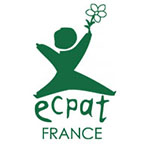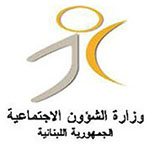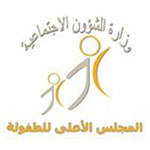The She Leads program aims at meaningful
participation and participation in decision-making processes by girls and young
women at different levels. At the international level, we direct our advocacy
to the United Nations. Last week, three girls from Lebanon, Kenya and Uganda
traveled to Geneva via She Leads to attend the 53rd session of the UN Human
Rights Council. There they delivered their message on topics that are important
to them and on which they also work in their own country. In addition, a
statement was prepared by girls and young women from the She Leads program
country Ghana, which was read in the meeting by our colleague there.
Girls and young women bear the brunt of crises
Lynne, 18, is from the Nabaa neighborhood of
Beirut, Lebanon. Since 2,5 years, she has been a member of one of the two core
groups of girls and young women that our She Leads partner Dar Al Amal works
with. She went to Geneva with a clear goal: "We urge member states to
include girls' voices and opinions in their decision-making and to protect
girls' rights." Lynne is concerned about climate change, among other
things. In her statement in Geneva, she emphasized the impact on girls and
young women. It affects food security that is already unevenly distributed. She
stressed that in times of crisis, girls and young women bear the heaviest
burden and are most at risk of exploitation and violence. This is even more
true for girls and young women with disabilities, she says. She also focused on
the impact of climate change on education systems: “In a crisis, education
often becomes inaccessible. That is why we urge member states to focus their
responses to crises and disasters on keeping health and education systems
afloat.”
The importance of a platform for social change
24 year old Margaret is from Mombasa in Kenya
and works in She Leads with our partner KAACR (Kenya Alliance for Advancement
of Children). She addressed Member States during a session on media literacy
and digital literacy, highlighting the digital gender gap and the importance of
the digital world for the right to self-expression. "Particularly for
girls and young women, it is an important platform for organizing and
mobilizing for social change. It empowers girls and young women to express
their views and question those in positions of power and demand accountability."
Child marriages and forced marriages
In addition to their statements in the Human
Rights Council, the activists spoke with Paul Bekkers and Kim Peters of the
Dutch Permanent Representation to the United Nations in Geneva about child and
forced marriages. A vote on a resolution was held in the Human Rights Council
on this subject. The activists stressed the importance of listening to girls
and young women ahead of the vote. Margaret: “Girls and young women in
different parts of the world suffer from traditional and harmful practices that
perpetuate child marriage. We are for dialogue and advocacy to debunk these
entrenched ideas and drive positive change in our communities.”
Mohammad a
success story, a motivation to go forward despite the current critical
circumstances in Lebanon.
When
Muhammad came to our center in Nabaa, he was a shy and disinterested child. Out
of school, he was working in a cafe.
By time, we have seen impressive progress in
his results in addition to his love for studying. He comes early with huge
smile saying: “Good morning Mrs Myrna”. And when Mohammad cannot come to the
center he sends a replacement, a young friend, believing he has reserved a
place to come back when it is possible for him.
What a
tenacious child who, despite all the difficulties, wants to learn and progress!
ناديا امراة سورية، عمرها الآن 26
سنة، متزوجة و لديها 4 بنات صغار أكبرهن عمرها 7 سنوات . تم توقيفها منذ سنتين ونصف
في سجن نساء طرابلس، بتهمة تجارة و تعاطي مخدرات هي و زوجها. اقام الأطفال مع
خالهن الغير مؤهل لرعايتهن و اعالتهن فهو دون عمل و غير قادر على تركهن لان الطفلة
الصغيرة عمرها فقط خمسة أشهر. منذ دخولها السجن، بدات الأختصاصيتان الاجتماعية
والنفسية من قبل دار الامل مساعدتها، على
جميع الصعد. وقد شاركت بدورات تدريبية متنوعة ساعدتها لكسب مهارات مهنية . ونظرا
لوضع الأطفال المأساوي، طلبت ن. من دار الامل ايجاد مركز ايواء لأطفالها , وقد تم
ذالك مباشرة من قبل فريق عمل دار الامل، بعد ان أحضر الخال الاطفال الى السجن،
تركهم على باب السجن وذهب .
اهتم فريق عمل دار الامل بجميع الاجراءات لحماية الاطفال بالتعاون مع
مندوبة الأحداث، وتم تأمين لهم مركز ايواء في طرابلس. وقد صدر بعد سنتين حكم براءتها
وبراءة زوجها من تهمة التعاطي. وبعد
خروجها من السجن استمرت الاختصاصية الاجتماعية والأختصاصية النفسية في جمعية دار
الامل مساعدتها على جميع الصعد، ومن ضمن ذلك الحصول على اذن من قاضية الاحداث للموافقة على زيارة أطفالها، مرة أسبوعيا. كانت الزيارة
الاولى مؤثرة جدا ً، تمت بمرافقة ايمان الاختصاصية النفسية في جمعية دار الامل.
وتستمر دار الامل بمساعدتها كي
تتغلب وزوجها على الظروف الحياتية و المعيشية الصعبة و أن يتم اعادة شمل العائلة
مع الاطفال وتحسين أوضاعها.
من خلف القضبان الحديدية الى قضبان الحياة
بعد ستة أشهر قضتها في سجن نساء بعبدا بتهمة
ترويج مخدرات، خرجت اليوم الصبية ك. من سجن
نساء بعبدا بانتهاء حكم ، اكتفاء مدة .
هي مثل المئات من الصبايا والنساء في لبنان،
ضحايا العنف والاستغلال والمشاكل العائلية والاجتماعية والاقتصادية . هي صبية، عمرها
الآن 23 سنة . عاشت طفولة أليمة و حرمانا
عاطفيا وتفكك أسري . كانت مرفوضة من الوالدين الذين تخلوا عنها . تزوجت أول شخص
تعرفت عليه، تبين فيما بعد أنه رجل عصابات
مسلح يتعاطى المخدرات ويتاجر بها. عاشت
سنوات من التعذيب والتعنيف الجسدي واللفظي
وحرمانها من أطفالها، لجأت الى مجموعة من
مروجي المخدرات اودوا بحياتها الى السجن.
كانت حالة ك .
سيئة جدا عند وصولها الى السجن. استقبلها فريق عمل دار الامل وتمت مساندتها من قبل الاختصاصية الاجتماعية والاختصاصية
النفسية . ساعدتها دار الامل قانونيا وعلى
جميع الصعد لاعادة التأهيل. خرجت من السجن بصحبة الاختصاصية الاجتماعة من
دار الامل ، الى مركز دار الامل في سن
الفيل، حيث استقبلتها الأختصاصية النفسية وباقي فريق العمل، الذين باشروا بتامين
لها كل ما هي بحاجة له لاعادة الاندماج
بالمجتمع .
تساعد جمعية دار الامل و بدون أي تمييز ,
جميع نزيلات سجون النساء الثلاث بعبدا وطرابلس وزحلة , وتؤمن لهن الحق والفرصة
لتحسين ظروف حياتهن .
وُلِدَت غدير عام ١٩٩٧ دخلت السجن في ٤ /١٢/٢٠١٦ عن عمر يناهز ١٩
سنة وغادرته بعد سنتين بحكم براءة.
وهذه قصتها .
ترعرعت غدير في كنف عائلة محافظة في جنوب لبنان. في سن المراهقة
رفضت عادات وتقاليد بيئتها فإصطدمت مع إخوتها مما إضطرها الى مغادرة المنزل
والذهاب للعيش في بيروت.
تعرفت على شاب هناك ونشأت علاقة بينهما. لكن هذا الاخير قام
بسرقة منزل وإتُهمت غدير بالتواطىء معه فأدخلت سجن بعبدا للنساء.
خلال تواجدها في السجن توفي والدها الذي طالما كانت تتكلم عنه
وتحبه كثيرا. هي كانت تتحمل أوضاع السجن الغير مناسبة لعمرها، على أمل الخروج
يوماً والعودة الى والدها. إنهارت كلياً وتألمت كثيراً من جراء هذا الظلم.
والدة غدير، المتقدمة في السن، تأتي اسبوعياً الى السجن
لزيارتها رغم حزنها ومعاناتها.
في الأول من اغسطس 2018 خرجت غدير من السجن بعد أن صدر الحكم
ببراءتها واطلاق سراحها.
دار الامل تابعت غدير خلال فترة وجودها في السجن ورافقتها نفسياً
وإجتماعياً. كما تابعت الأم والأخوة تحضيراً لخروجها من السجن حرصاَ على عودة غدير
الى العيش في منزل والدها مع امها واخوتها تفاديا لعودتها
الى الشارع.
ودار الامل ستستمر في متابعة غدير خارج السجن لتأمين الدعم لها
لكي تبدأ حياة جديدة وتؤسس لمستقبل افضل.
هي صرخة الآلم التي اطلقتها ماجدة عندما انهار كل شيء من
حولها. فقدت كل رغبة في الحياة، المغامرة، الذهاب الى الشاطىء، ركوب الدراجات
النارية، ووجدت نفسها وحيدة من دون اي ضمانة باستثناء دار الامل .
ترعرعت ماجدة في دار للايتام بعد ان تخلى عنها والديها عند
ولادتها. ثم تم وضعها في مستشفى للامراض العقلية بسبب سلوكها المزاجي.
فرت من المستشفي في سن الرابعة عشر . خلال فرارها تعرضت
للعنف والاغتصاب عدة مرات من قبل العديد من الاشخاص.
لقد طُردت من المستشفى ووضعت في دار الامل للمتابعة.
لم تكن ماجدة تدرك ما هي الدعارة لكن هذا ما كانت تمارسه
منذ ان غادرت المستشفى.
مريضة، معنٌفة، مطرودة من كل الاماكن كانت تنام تجت الجسور
وعلى الشاطىء. لكنها كانت غالباً ما تعود وتطرق باب دار الامل لانه المكان الوحيد
المتبقي لها في الحياة. هكذا بدء مشوارها الطويل الذي يوصلها الى حد معين من
الاستقرار.
كان من البديهي ان نجد لها اولاً مكان للسكن ومن ثم عمل.
ماجدة قد سبق وطردت عدة مرات من العمل بسبب عدم انتاجيتها وعدم انضباطها وتأقلمها
مع الآخرين ومواكبتهم. فغرقت في اليأس وانعزلت عن الجميع وعن كل شيء.
إذاً كان لا بد من مرحلة انتقالية بين الماضي المؤلم الذي
عاشته ماجدة واعادة الاندماج الفعلي في المجتمع. كان لا بد من مرحلة تأقلم دون
اغفال الإطار الضروري الذي يؤمن لها الاهتمام والقبول والتفهم.
اليوم ماجدة وصلت الى مرحلة من الاستقرار المهني والعاطفي
والنفسي والاجتماعي.
اصبحت مستقلة ومعتمدة على ذاتها.
قصة نجاح ماجدة في تغيير واقعها يعود الى ارادتها في
التغيير ودعم الجمعية لها على مختلف المستويات والمثابرة بالرغم من كل الحواجز
والإيمان بالقدرة على التغيير الى حياة افضل.
“Education is the weapon of people. It is an effective
method by which we can grow better and faster. Although my brother can’t attend
school because he has to work, but this doesn’t stop him from learning, that’s
why due to the help of my teachers at the center, I started to teach my brother
every evening at home after he finishes work.” Said Lina.
Lina is 16. She lives with her family- her parents,
her younger brother and older sister in a humble apartment in Bourj Hammoud.
Her father is a painter and her mother is ill. Lina’s
younger brother who is 13 doesn’t go to school; instead he works in car
mechanics. He walks for 30 minutes everyday to reach work.
Due to the restricted cultural values at Lina’s
family, the older sister who is 18 years old and engaged is not permitted to
work. Lina attended literacy, numeracy classes; recreational activities and
awareness sessions at Dar Al Amal center- Nabaa.
Side to all that, she also attended the Make-Up and Nails
vocational training, for a period of 3 months in which she developed a soft
skill and got a certificate.
Lina is feeling bad due to her bad family situation,
that’s why she is looking for a job. She thinks that she has to work in summer
to help her sick mother. During the awareness sessions Lina had
known that working at her age will perpetuate poverty except of reducing it.
She is aware today that if it is a must for her to work and help her family
this shouldn’t stop her from attending the classes at the center and side to
that she also promised that she will only seek a part time job that won’t harm
her development.
اسمي سمية , كنت صبية صغيرة , عمري أقل من سبعة عشر سنة.
ما كنت عم اتفاهم مع أهلي , مشاكل , عطول خناق ,
مع انو هنن طيبين , بس ما كانوا عم يفهموني .لقيت الحل انو اهرب من البيت .
وهيك صرت اهرب من البيت كم يوم وارجع , واهرب عن جديد اكتر من مرة . وزادت مشاكلي
مع اهلي . ويوم من الايام تعرفت على مجموعة فكرتن رح يساعدوني , بس بالعكس ضحكوا
عليي واستغلوني , وجروني للطريق الغلط , ومن شغلة لشغلة وصلت فجأة ع سجن طرابلس .
خفت كتير , وانهارت أعصابي , وضعت ......ولحسن حظي , تعرفت بالسجن على منى الاخصائية
اجتماعية من جمعية دار الامل , هيي يللي ساعدتني وسمعت مشكلتي وهمومي , وزارت اكتر
من مرة اهلي وعملت كل الطرق لتحسن علاقتي معن . وكمان ايمان الاخصائية النفسية من
دار الامل كتير ساعدتني ت اتحمل الوضع بالسجن وقوي حالي وفكر كيف لازم ارجع اتصرف
بس اضهر من السجن .وهيك بمساعدتن ضهرت بعد اربع شهور من السجن ورجعت لاهلي بفضلن ,
وعلاقتي كتير صارت منيحة معن . صار عمري 20 سنة , وبعد كل اللي مرق ع
راسي, أخدت قرار انو رح غير طريقة حياتي, وبدعم ع طول من دار الامل , صار عندي أمل
أكتر بالمستقبل, ورح ادرس واعتمد ع حالي, واتعلم مهنة واشتغل, وساعد نشا الله حالي
وساعد كمان عيلتي .......شكرا دار الامل
Surviving Abandonment and Maltreatment in prison: Setting out to new horizons
Rana
was born in 1989. Married and without children her husband denounced her to
save himself from jail. She was suspended on charges of murder for almost four
years in women's prison of Tripoli. Her husband
left her and travelled.
With her family not living in Lebanon Rana stayed in jail without a lawyer.
Therefore
Dar Al Amal provided her with legal aid including a lawyer.
During
her incarceration Rana participated in many activities (which) Dar Al Amal
offers in the women's prison of Tripoli. These activities are organized in the
framework of DAA's rehabilitation and reintegration project for women prisoners.
These activities include vocational trainings
on sewing, decorating ornaments, computer skills, handicraft etc. These
contributed to the development of Rana skills and helped her to ensure an
income due to the sale of her products by Dar Al Amal.
In addition Rana was followed up socially and psychologically.
Unfortunately
her relationship to her parents suffered under her imprisonment. They refused
to visit her as they weren’t able to accept her being in prison. Dar Al Amal
offered a family follow-up as well until finally her father accepted to visit
Rana in prison. Moreover he supported her with money.
After
DAA paid Rana's bail she has been released.
At that time she was yet fully qualified to face a society which
condemns women prisoners and hinders them in returning to a normal life without
obstacles.
Fadia
was raised in a broken family. Her parents were always fighting. Their home was
full of violence. At the age of 16 she ran away with the first man she met.
They got married.
Fadia's
husband turned out to be an alcoholic, who used to beat her regularly. After a
while, as if that were not enough, he started to exploit her and sold her to
other men.
Fadia
gave birth to two children, but her life was not changing. At some point she
wanted to kill herself but she could not. She was invariably thinking of her
kids. Finally she got a divorce and for a while she lived with her kids on the
streets.
Eventually
she was directed to Dar Al Amal, where she received help:
A place to study, eat and sleep was provided
for Fadia's children. The work with Fadia started immediately by offering her
psychological help and by finding her a shelter to sleep. After some time, she
found a job as well and therefore was able to rent a room. She could see her
kids every weekend.
Until
now Fadia still visits Dar Al Amal and participates in field trips.
Ola is a 12 years old girl who lived
with her family, which consists of mother, father and 3 children. They suffered
from difficult social and economical circumstances:
Her father worked as a security
officer in a small market in Beirut. Her mother worked as a cleaning lady.
However, their income was not enough to meet their basic needs.
In addition Ola was victim of her
father's physical and moral abuse.
Those conditions affected Ola in
1-
School:
She was at high risk of dropping out from school, as she was repeating her
classes for the second time (grade 4).
2-
Friendships:
She was unable to make any friends, neither in school nor in the neighborhood.
She preferred to be alone.
3-
Relationships
to her family: She hated her family, especially her father, and dreamt of
running away from home.
Dar Al Amal assisted Ola and her
family during the hardest time, in which they attended social and psychological
services.
Now Ola is improving at school
again. She’s enjoys it and comes regularly to the centers.
Her mother is supported by a social worker and
a psychotherapist, who are teaching her how to protect herself and her
children.
Rouba
is 12 years old and lived in a small room together with her mother and 3
brothers.
Her
father left home 6 years ago, after a big fight with his wife: He used to hit
her and their children, especially Rouba.
The
family was facing serious socio-economical problems and was not able to pay the
rent or even food.
In
order to support her family, Rouba's mother worked at night, which created
rumors that she might be a prostitute, and spent all day sleeping.
Due
to this situation, Rouba had a lot of behavioral and psychological problems:
1- She
skipped school and spent all day with some boys on the streets without her
mother knowing.
2- She
used to drink alcohol and to smoke water pipes.
3- She
failed her 8th grade three times.
4- She
became unhygienic, wore dirty clothes etc.
5- She
was in high risk of delinquency.
Rouba
came to the center, and a social worker created an action plan with herto
instantly start helping.
In
collaboration with a psychotherapist and the DAA team, Rouba showed of the
following improvement:
1- She
benefited from school reinforcement as her grades improved.
2- Psychological
counseling helped Rouba in her to deal with her situation. She became more
responsible, less careless.
3- The
social worker assumed the social follow-up with Rouba. Together they solved
some problematic issues such as hygiene. Moreover they worked on her interpersonal relationships.
Therefore the social worker also cooperated with Rouba’s mother to improve her
social and medical situation and not east her relation with Rouba. AShe learned
how to protect Rouba, especially from the risk of delinquency.
4- After
one year of social and psychological follow-up, Dar Al Amal saw the need to
take Rouba out of her family and she moved to a new home for her best interest.
Mariam
is 15 and her sister Rima is 16 years old.
Their father is an alcoholic and addicted to gambling. He neither works nor supports his family. While their mother
is sick and suffers from high blood pressure and diabetes. Therefore she needs
a permanent medication. Moreover their older brother is unemployed. Furthermore
their father is very abusive, meaning he beat them continuously. Several times
they ran away from their home and slept on the streets.
Due to their deteriorating economic condition their mother made them support
their family: She forced them to work as dancers in night clubs.
At the beginning the girls did not know the risk of it and therefore welcomed
the idea. It seemed to be just an alternative place to sleep – better than
sleeping in the streets. By the time the girls were disgusted by their job and
saw the dangerous side of it. Not least
they were exposed to several harassments. While a social worker of Dar Al Amal
was visiting the families in an area in Beirut, and was informing girls about
the center, she was introduced to Rima and Mariam. He/she encouraged them to come to the center
and join the literacy session. The girls showed great commitment by coming to
the shelter, but after a while, they stopped appearing. The social worker
visited their home and met the mother, who claimed they were working until late
hours. Therefore they were not able to
wake up early in the mornings in order to come to the center Moreover they needed
money for her medical treatment and other family expenses.
So the family was followed up and informed about the danger of the girls
working in night clubs.
After that, Mariam and Rima continued their classes in the center and joined
the English session as well. In addition to psychological and social follow up
they joined several recreational activities.
The follow up continues, but the girls need time to forget about their
experiences and to adopt with their new opportunities.



